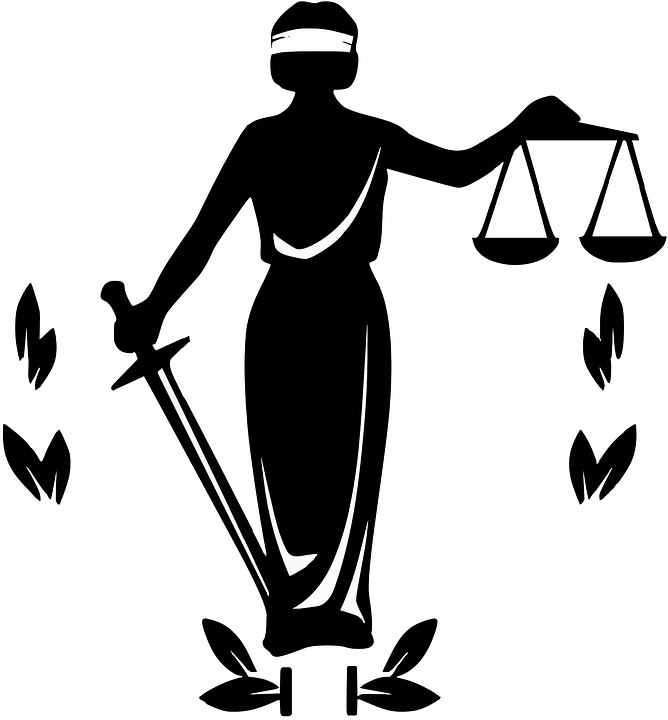Lady Justice is the idolization of an ideal passionately held by humans. Justice may vary slightly in meaning for specific individuals, but a constant definition includes equal treatment when seeking reparations or defending against accusations. Lady Justice is often depicted as a young woman in a toga, holding scales, and with a blindfold pulled over her eyes. However, bias has long been embedded in justice systems. Shakespeare acknowledged an aspect of this reality, financial bias, through a truism in King Lear, “Through tatter’d clothes small vices do appear; Robes and furr’d gowns hide all.” Ironically, while Lady Justice’s eyes are covered, she is regularly molded from gold, sustaining Shakespeare’s observation of justice being impartial to the wealthy, and further supported by classic American literature and history.
Evident in John Grisham novels, justice can be miscarried in national courts because of bribes or unconscious prejudice. However, as shown in Ralph Ellison’s Invisible Man, personal judgments can also be influenced by individuals’ wealth. Until his disillusionment, the narrator often mistakes the true character of authorities throughout the novel, dismissing these individuals’ inconsistency due to their accumulated wealth and power. This is juxtaposed with the narrator’s overreaction to his friend, Brother Tod Clifton, abandoning the Brotherhood’s values, much like Shakespeare’s ‘plated sin’ and ‘arm[ed] in rags.’ As fallible entities, people often find it easier to condemn lessers or equals than the society’s patricians. Some judicial branches depend on average citizens serving on juries to bestow justice, but like in Grisham’s novels or To Kill a Mockingbird, jurors reflect communal biases.
The term, ‘Gilded Age,’ was coined by Mark Twain, referring to the late 19th century industrial America where the few very rich ‘covered’ the common very poor. During this era, the government was sympathetic and favored corporations, allowing ‘robber barons’ to create monopolies. When Theodore ‘Trust-Buster’ Roosevelt claimed the United States Presidency in 1901, businesses had become big, leaving ‘the strong lance of justice’ under qualified to truly impose on ‘captains of industry.’ Sadly, the protection afforded to companies cost the workers. Despite the creation of labor unions, ‘muckrakers’ publishing corporate abuse, and more access to basic needs, the lower class remained vulnerable to ‘a pigmy’s straw.’
In Shakespeare’s Merchant of Venice, Shylock is a wealthy Jew who takes the popular, and Christian, Antonio to court for being unable to pay a debt. Shylock loses the case and is charged with conspiracy to murder. This brief summary of The Merchant of Venice seems to contradict King Lear’s speech, the rich Jew losing his case to a debtor, but Antonio had recently been extremely wealthy until his merchant ships sunk. Instead, Shakespeare is highlighting another aspect, social class, to which justice is never blind, without undermining the influence of financial means.
Lady Justice’s feet are iconic, like Lady Liberty, she is progressing towards the edge of her pedestal. Understanding the continued deficiencies of personal judgments and national judicial systems allows citizens to recognize unconscious biases, like favoring prosperity to poverty, and may lead to meaningful reform within entities and governments. While bias can never truly be removed, our culture’s stories and history may progress with justice towards equality.













